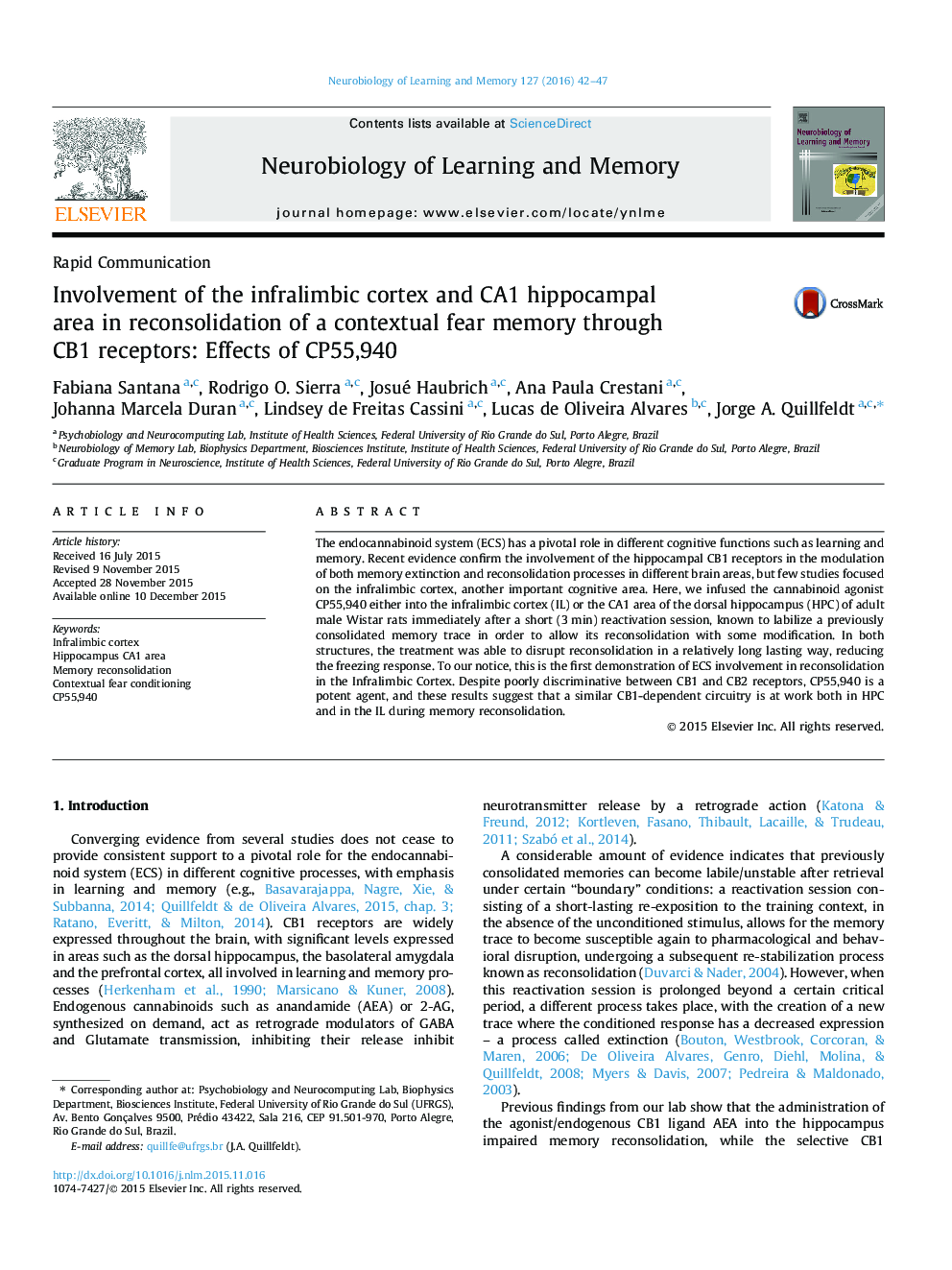| Article ID | Journal | Published Year | Pages | File Type |
|---|---|---|---|---|
| 936438 | Neurobiology of Learning and Memory | 2016 | 6 Pages |
•Cannabinoid agonist CP55,940 disrupts consolidation and reconsolidation in CA1 area.•The blocking of this effect by AM251 suggests it to be a CB1-mediated mechanism.•First demonstration of Infralimbic Cortex involvement in reconsolidation via ECS.
The endocannabinoid system (ECS) has a pivotal role in different cognitive functions such as learning and memory. Recent evidence confirm the involvement of the hippocampal CB1 receptors in the modulation of both memory extinction and reconsolidation processes in different brain areas, but few studies focused on the infralimbic cortex, another important cognitive area. Here, we infused the cannabinoid agonist CP55,940 either into the infralimbic cortex (IL) or the CA1 area of the dorsal hippocampus (HPC) of adult male Wistar rats immediately after a short (3 min) reactivation session, known to labilize a previously consolidated memory trace in order to allow its reconsolidation with some modification. In both structures, the treatment was able to disrupt reconsolidation in a relatively long lasting way, reducing the freezing response. To our notice, this is the first demonstration of ECS involvement in reconsolidation in the Infralimbic Cortex. Despite poorly discriminative between CB1 and CB2 receptors, CP55,940 is a potent agent, and these results suggest that a similar CB1-dependent circuitry is at work both in HPC and in the IL during memory reconsolidation.
